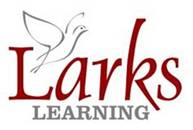Paradigm Shift: Your Network as a Mentor
Build Your Support! Why? Successful women have the right networks, mentors and sponsor. BUT we regularly hear from women (especially in developing and emerging markets) who report not having mentors or knowing where to start to get the right support. We’re here to help you do just that. Keep an eye out this week for vital tips to infuse your path to professional success.
Dictionary.com defines mentor as 1.) a wise and trusted counselor or teacher, and 2.) an influential senior sponsor or supporter.
Traditionally, mentoring implied a one-way interaction from the wise counselor/guide to a naïve follower. However, the world we are living in is metamorphosing rapidly, and the pace and increase in knowledge is mindboggling, as is the complexity and plethora of information. Business heads and executives are changing companies frequently and most people are shifting careers a couple of times over their working life. Rigid mentoring systems of organizations are falling by the wayside as peer learning networks are taking over.
Today, we have a unique situation where it is nearly impossible to find a person who is able and willing to guide one credibly over the gamut of life. Therefore, mentor and mentoring as traditionally defined is now a construct of the past.
However, the importance of receiving mentoring has not diminished. If anything it has amplified.
A shift in paradigm from “Person as a Mentor” to “Network as a Mentor” is underway. Instead of concentrating on a mentor, we need to be open to learning from everyone we interact with. As Buddha says, “When the disciple is ready the master appears.”
Instead of concentrating on a mentor, we need to be open to learning from everyone we interact with. As Buddha says, “When the disciple is ready the master appears.”
From Dr. Pronoy Roy of New Delhi Television, I learnt “Smile and ask for your money.” From Peter Cox, “Never do for someone what he can do for himself.” Pankaj Mathur, UshakKaal, shone light on my passion for processing and then sharing knowledge which prompted me to shift from advertising into training and facilitating. From Prof M.M.Pant, I learnt about the new horizons that social media, apps and new training technologies bring to learning. From Anila Rattan, I am trying to learn how to step on a person’s toes yet not mess the shine. I have learned from seniors, from peers, from subordinates, from acquaintances and friends. They all form my network.
As I look at my career, I can see various inflection points created by the many men and women who invested in me. What’s interesting is that none of these were through planned mentoring programs, they were done in tiny slivers of time, over a cup of coffee, while waiting for a meeting, etc.
Every interaction is a learning opportunity and needs to be treated like that. As a mentor Prof M.M.Pant says, “When we meet, what I learn from you is mine. And what you learn from me is yours. That is the rule in a knowledge economy.”
When we meet, what I learn from you is mine. And what you learn from me is yours. That is the rule in a knowledge economy.
 While we fully appreciate the value of peer learning networks and self-directed learning, we still see a role for formal learning. At Larks Learning (a training and psychometric assessment company), we create and execute a number of formal learning and development interventions. We as psychometric assessors use DISC profile to cover the gamut from assessing for recruitment, to carving career paths to creating development plans. And as facilitators we conduct many workshops covering skills as diverse as selling skills, managerial skills, leadership skills and communication plus interpersonal skills.
While we fully appreciate the value of peer learning networks and self-directed learning, we still see a role for formal learning. At Larks Learning (a training and psychometric assessment company), we create and execute a number of formal learning and development interventions. We as psychometric assessors use DISC profile to cover the gamut from assessing for recruitment, to carving career paths to creating development plans. And as facilitators we conduct many workshops covering skills as diverse as selling skills, managerial skills, leadership skills and communication plus interpersonal skills.
Are you grabbing all opportunities to learn whether formal or informal?
Are you actively creating a network of people who can mentor you?
And, most importantly, are you paying it forward by mentoring others?
Learn more at larkslearning.com and be sure to support them on Facebook and follow them Twitter for great updates.